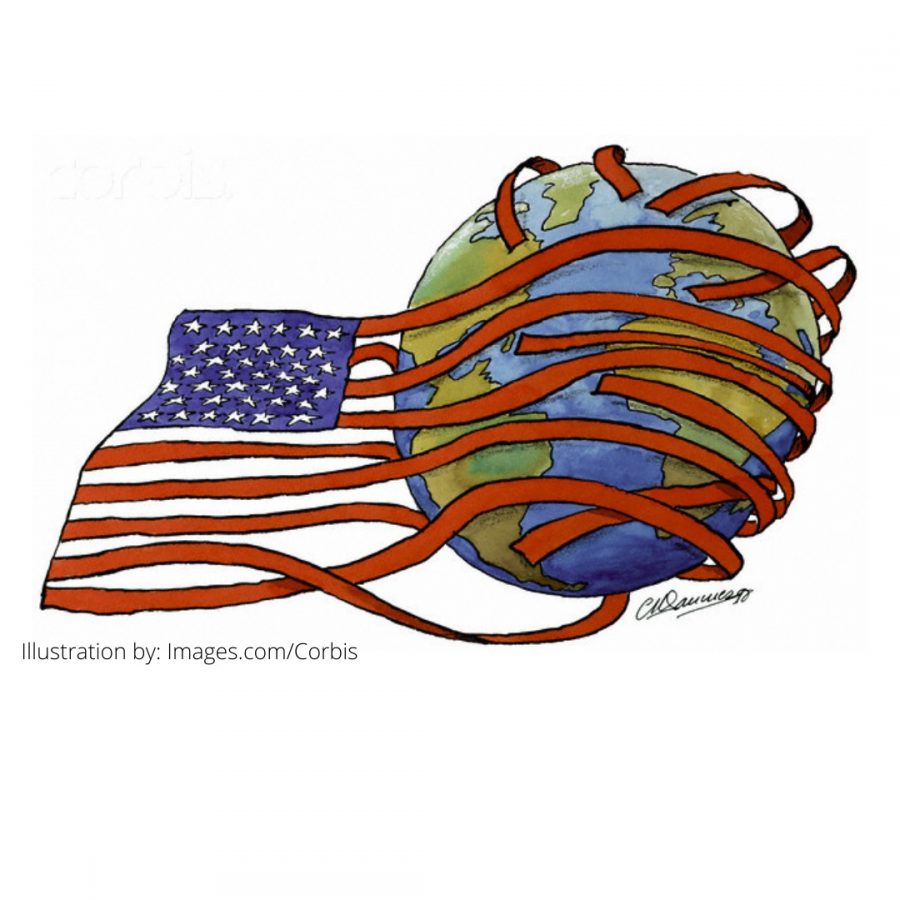(From the archives) The biggest threat to democracy: American hypocrisy
The United States of America was based on the concept of democratic republicanism. This means that citizens have the power to elect their own representatives in the government. Yet, 4.4 million citizens that are part of the U.S. territories such as the U.S. Virgin Islands and Puerto Rico don’t have the right to vote on national issues or to even have a voting representative in the legislative branch.
In the beginning, the country was founded under the ideals of fraternity and unity, which they betrayed once America began to oppress people that were not part of the original 13 colonies. The small nation was surrounded by powerful European countries– the French had control over the Louisiana territory west of the states and the Spanish governed Florida.
As the U.S. became better organized and improved their economic position, the government started to encroach westwards, and gained territories such as Louisiana, Florida and the region west of the Louisiana territories. These territories applied for statehood, and their right to be represented in Congress was granted.
And so, all these territories were seen as rightful parts of the United States, since they were contiguous to the original states. When the U.S. bought Alaska in 1867 from Russia, though, the country started to become imperial like the empire that they themselves had fought to get rid of by having noncontiguous land. Moreover, Alaska wasn’t admitted as a state for 92 years, meaning that the residents of this territory did not have representation that could vote in Congress for almost a century.
This was also the case with all the land-holdings America gained after the Spanish-American War, which included the Philippines, Guam and Puerto Rico. They were seen as part of the overseas territories and none of these have a vote in Congress.
Currently, the United States has 16 territories abroad that are not recognized as states, but as commonwealths. According to The Washington Post, the residents of these territories combined make up 4.4 million people. This is almost the same amount of people that are in Delaware, North Dakota, South Dakota, Alaska, Vermont and Wyoming combined (4.5 million).
Still, according to Slate, most Americans don’t know much about these U.S. territories. The evidence for this includes a poll by Morning Consult that found that nearly 50 percent of Americans don’t know that Puerto Ricans are American citizens, and the fact that President Donald Trump once referred to the Virgin Islands governor as “president,” showing that he doesn’t even know the political systems of these territories that should be states.
When Steven Groothuis, the Advanced Placement United States History teacher lectures about the overseas territories of the country, he finds that most students don’t know much about them.
“When I teach about the Spanish-American Wars, and I tell them about these territories, they seem surprised at the way these territories were treated at first,” Groothuis said.
Since not many people are aware of the position of these states in American politics, this entails to the avoiding of the issue of the future of these regions outside of the mainland United States, with representatives not pushing forward the vote on whether territories like Puerto Rico should become states.
It is unbelievable that despite having the same population of six U.S. states together, these people still do not have recognition in federal affairs. They are as unimportant to Congress as the American colonies were to the British parliament. These territories do not even have the right to vote in the presidential elections.
Thomas Jefferson himself recognized the United States of America as an “empire of liberty,” but before the country is able to call itself this, it should let territories be free, instead of making them subjects of Congress’s laws.
A clear example of how these territories are as the 13 colonies were to Great Britain was after Hurricane Maria, when Puerto Rico was devastated. They needed to get goods from foreign powers, but because of the Jones Act, which states that every ship that arrives in Puerto Rico must be built, crewed and owned by American citizens, goods going into Puerto Rico cost twice of what it would cost in the mainland United States. Because the island doesn’t have voting representatives in Congress, they were not able to push forth a waiving of the law in order to get cheaper goods during a crisis. Instead, they depended on Trump and Congress to waive the law. They didn’t, and Puerto Rico still maintains its declining economy due to the hurricane and the Jones Act.
This shows that their own futures are decided by representatives that do not represent them, and they do not have a say in most laws that affect them.
The sole purpose of the creation of this country was to end tyranny and to create a democracy where everyone had a say. By not allowing these territories to become states with elected representatives, the United States is doing what the British did to them before: oppression without representation.































Eric Hafter • Dec 4, 2020 at 6:32 pm
Don’t forget the Supreme Court upheld the position that constitutional protections do not apply to the territories in the Insular Cases. Statehood is the only legal option for those living in American territories.